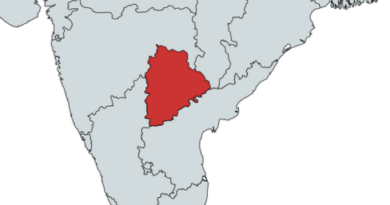The Election Laws Amendment Bill 2021
Context:
Recently, the Election Laws Amendment Bill, 2021 was passed in the Lok Sabha. The bill seeks to link electoral roll data and voter ID cards with the Aadhaar ecosystem.
Contents
About The Election Laws Amendment Bill 2021:
- The Election Laws (Amendment) Bill, 2021 was introduced in the Lok Sabha on December 20, 2021.
- The Bill amends the Representation of the People Act, 1950 and the Representation of the People Act, 1951 to implement certain electoral reforms.
- The 1950 Act provides for allocation of seats and delimitation of constituencies for elections, qualifications of voters, and preparation of electoral rolls.
- The 1951 Act provides for the conduct of elections, and offences and disputes related to elections.
- Linking electoral roll data with Aadhaar: The 1950 Act provides that a person may apply to the electoral registration officer for inclusion of their name in the electoral roll of a constituency. After verification, if the officer is satisfied that the applicant is entitled to registration, he will direct the applicant’s name to be included in the electoral roll. The Bill adds that the electoral registration officer may require a person to furnish their Aadhaar number for establishing their identity. If their name is already in the electoral roll, then the Aadhaar number may be required for authentication of entries in the roll. Persons will not be denied inclusion in the electoral roll or have their names deleted from the roll, if they are unable to furnish Aadhaar number due to sufficient cause as prescribed. Such persons may be permitted to furnish alternate documents prescribed by the central government.
- This aims to curb the menace of multiple enrolment of the same person in different places.
- This will help in stopping bogus voting and fraudulent votes.
- This linking is in consonance with 105th report of the Department Related Parliamentary Standing Committee on Personal, Public Grievances and Law and Justice.
- Qualifying date for enrolment in electoral roll: Under the 1950 Act, the qualifying date for enrolment in the electoral roll is January 1 of the year in which such roll is being prepared or revised. This implies that a person who turns 18 (i.e., eligible to vote) after January 1 can enrol in the electoral roll only when the roll is prepared/ revised the next year. The Bill amends this to provide four qualifying dates in a calendar year, which will be January 1, April 1, July 1, and October 1.
- Requisitioning of premises for election purposes: The 1951 Act permits the state government to requisition premises needed or likely to be needed for being used as polling stations, or for storing ballot boxes after a poll has been conducted. The Bill expands the purposes for which such premises can be requisitioned. These include using the premises for counting, storage of voting machines and poll-related material, and accommodation of security forces and polling personnel.
- Gender-neutral provisions: The 1950 Act permits certain persons who are ordinarily resident in a constituency to register in electoral rolls. Such persons include those holding a service qualification, such as members of the armed forces or central government employees posted outside India. The wives of such persons are also deemed to be ordinarily residing in the same constituency if they reside with them. The 1951 Act enables the wife of a person holding a service qualification to vote either in person or by postal ballot. The Bill replaces the term ‘wife’ with ‘spouse’ in both the Acts.
What are the criticisms behind the Amendment?
- Achieving the Objective – One of the concerns is whether the Bill’s implementation will be successful if the linkage is not compulsory.
- According to the bill providing Aadhaar data is voluntary and not mandatory.
- Even though the Aadhaar requirement is said to be voluntary,there ia a concern that in practice it can be made mandatory.
- The reasons on the basis of which a person can choose not to link my Aadhaar will be prescribed by the government. The choice not to submit is linked to a “sufficient cause”
- However the “sufficient cause” is not mentioned in the Bill.
- Complaints of wrongful enrolment in UIDAI have come up even though the unique identity number has been allotted to more than 90% of the population.
- Exclusion of foreigners – There is a conceptual confusion whether Aadhaar linkage will enable non-citizens to vote as Aadhaar is not proof of citizenship.
- Also the goal of preventing non-citizens from voting will not be solved.
- Profiling of citizens – Individual identification of voting choices is not be possible with the linkage of Aadhaar. However it may lead to profiling.
- Verification of a person’s identity when a person goes to vote is separate from the capturing of the identity.
- It could lay the foundation of targeted political propaganda which is against the model code of conduct.
- Security Vulnerabilities – In 2019 UIDAI accused IT Grids (India) Private Ltd of illegally procuring details of Aadhaar holders in Andhra Pradesh and Telangana, and storing these in its databases.
- This raises concern regarding the security vulnerabilities of UIDAI servers.
Way Forward
- Need for Comprehensive Legislation: An error-free Electoral Roll is sine qua non of free and fair election. However, the Government should come with a comprehensive bill so that proper discussion can happen in the Parliament.
- Need for More Clarification: The bill should specify the extent of data sharing between the two databases, the methods through which consent will be obtained, and whether consent to link the databases can be revoked
Source: Indian Express
You can find many articles on ACTS AND AMENDMENTS (part of GS II) in our website. Go through these articles share with your friends and post your views in comment section.
Discover more from Simplified UPSC
Subscribe to get the latest posts sent to your email.



